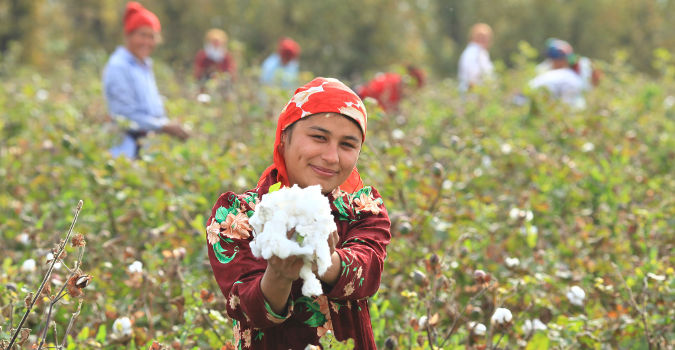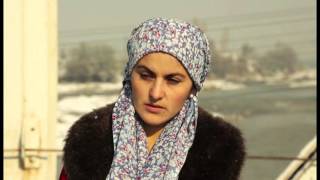Tajikistan

Women suffer disproportionately from this poverty. For every 100,000 live births, 65 women die from pregnancy-related causes; the adolescent birth rate is 42.8 per 1000 live births. The highest risk of poverty occurs in households headed by women, the uneducated heads or with many children.
An independent nation since 1991, Tajikistan suffered a civil war from 1992 to 1997 that severely damaged its already weak economic infrastructure and caused a sharp decline in industrial and agricultural production.
Throughout Tajikistan, women face discrimination and inequality in social, economic and political life. Their representation in Tajik politics and decision-making remains below international standards.
Tajikistan has ratified the Convention on the Elimination of All Forms of Discrimination against Women (CEDAW) in 1993 and its Optional protocol in 2014, as well as the International Convention on the Protection of the Rights of All Migrant Workers and Members of Their Families in 2002.
A poor domestic economic has seen nearly one in five Tajik citizens – 1.5 million – work abroad, roughly 90 per cent of them in Russia. Their remittances are the country’s main source of income, and made up 41.7 per cent of GDP in 2014.
Most of the emigrants are male. Their left-behind or abandoned wives become de-facto heads of households, solely responsible for generating family income – despite limited access to education, resources, micro-credit, social protection and employment, particularly in rural settings.
In 2009, IOM reported 300,000 abandoned households, 70 per cent of them with children.
Abandonment is exacerbated by the negative social norms and traditional attitudes to women’s status and rights within the family and society. Tajik parents often put more resources into boys as future breadwinners, creating a bleak future for girls and severely limiting women’s economic self-sufficiency.
Gender-based domestic violence is prevalent in Tajikistan, and is surrounded by a culture of silence. Although 20 per cent of married women have experienced emotional, physical or sexual violence by their husbands, only one in five victims files a report. There is a great need to increase to domestic violence awareness in both the population and law enforcement staff on the National Law on the Prevention of Violence in the Family (adopted in 2013) and the corresponding State Programme.
Few women in Tajikistan are involved in disaster preparedness and humanitarian response decision-making.
Home to some of the world’s largest glaciers, Tajikistan is located along a seismic rift and suffers each year 150 small- to medium-scale disasters – flooding, mudslides, rock falls, avalanches, landslides and earthquakes – that affect at least 10,000 people annually. Recent unusually high temperatures have triggered glacial melts, vast mudflows and rising water levels – and badly affected communities already overstretched by chronic poverty, food insecurity, a lack of sustainable livelihoods and a significant decrease in foreign remittances.
Women in Tajikistan are under-represented in political decision-making at all levels. In Parliament, only 19 per cent (12 of 63) legislators are women and only two parliamentary committees and only one ministry are headed by women.
UN Women has worked in Tajikistan since 1999 to promote gender equality and women’s empowerment. Aligned with the country’s national development priorities, in 2016-2020 UN Women supports Tajikistan’s efforts to implement its gender equality commitments by focusing on initiatives in:
- Economic empowerment
- Ending violence against women
- Peace and security and engendering humanitarian action
In addition, UN Women leads the Extended UN Gender Theme Group, which provides a vibrant platform for national and international stakeholders to coordinate gender-specific activities in Tajikistan. As a member of the Rapid Emergency Assessment and Coordination Team (REACT), UN Women ensures that natural disaster-prone Tajikistan takes gender-responsive disaster risk reduction measures.
[1] United Nations Development Assistance Framework for Tajikistan for 2016-2020
Featured video
Latest news
Featured publication
Knowledge Package on Gender-Responsive Budgeting/Комплект учебно-методических материалов по гендерно ориентированному бюджетированиюThis gender-responsive budgeting knowledge package is the first comprehensive educational package in Russian to combine the theories and practices of gender-responsive budgeting exercises, particularly those conducted in Commonwealth of Independent States (CIS) countries from 2001 to 2013. The package includes a Resource Manual, Trainer Resource Pack, and Practice Book. More
See more publications from Tajikistan here.
From the Alps to the yurt: Swiss cheese meets Tajik milk bowls
The Cheese Exchange, a UN Women initiative, brought entrepreneurial Tajik and Swiss women cheese makers together to share skills and develop new dairy products for Tajikistan. Read more »
See more news from Tajikistan here.


